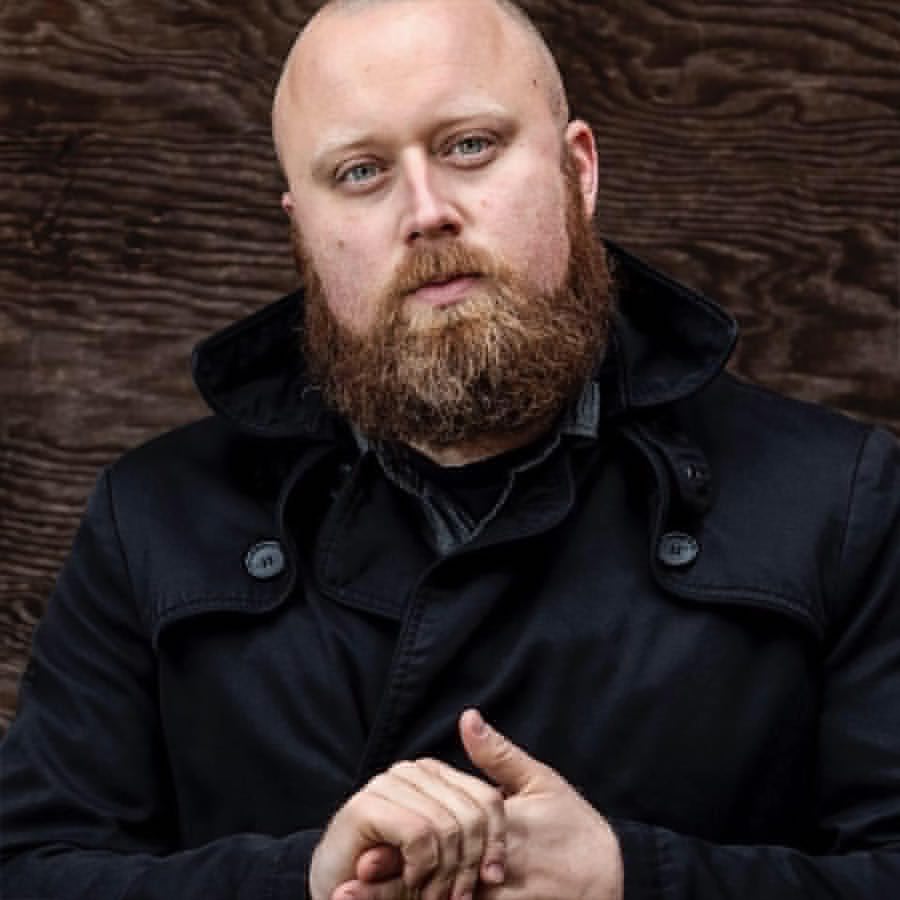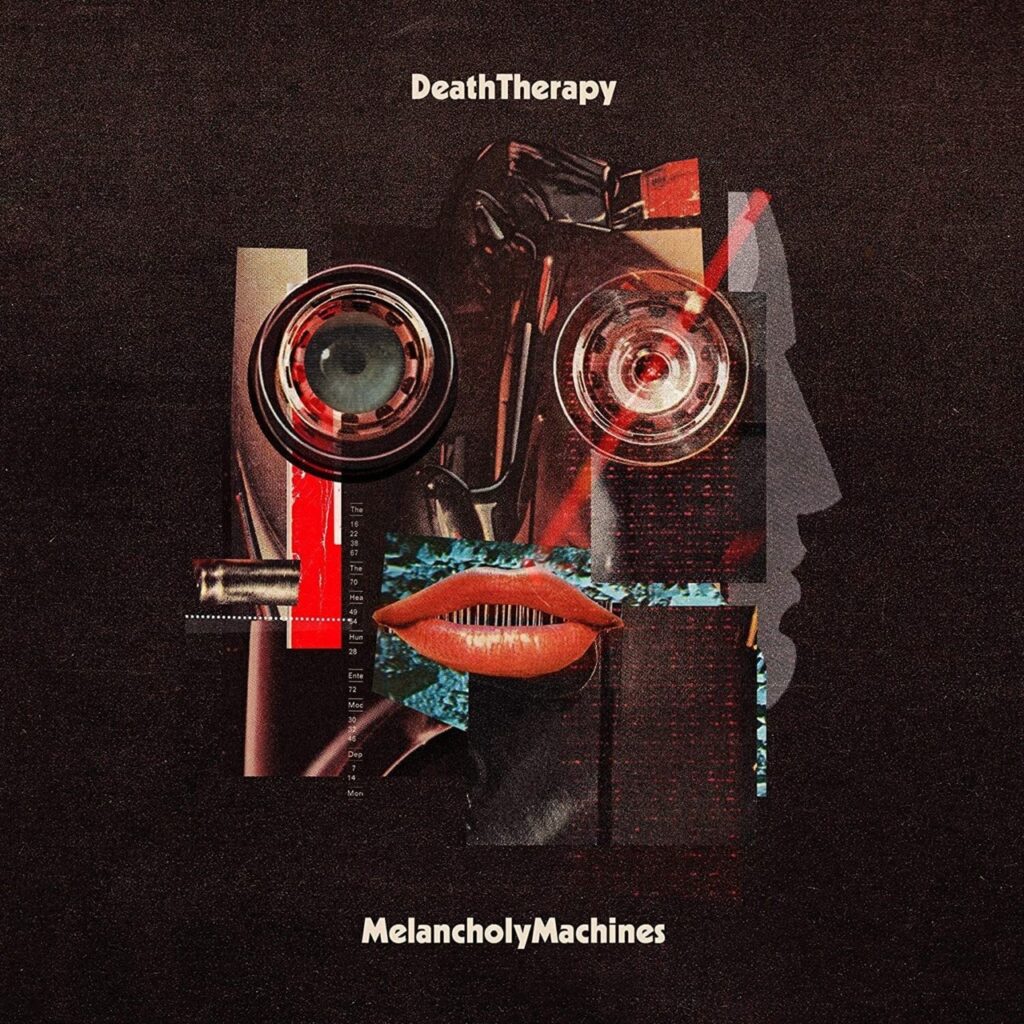Back in early 2015, I interviewed Jason Wisdom. We’d connected rather randomly on Facebook. Having a musical background and an interest in apologetics, Jason posted a lot on the intersections of Christian music and faith. We seemed to share an interest in the role of the Christian artist in proximity to the local church. Well, since that interview, Jason has plunged even deeper into the industry, formed another band, started additional music projects, and even managed to write a couple of books. So I felt it would be a great time to catch up with Jason.
***
MIKE: When we last spoke, you were in between bands. You’d just come on staff with RYFO, which is a para-church ministry to Christian musicians. As a former pastor, the connections between Christian musicians and local churches have always appeared tenuous to me. Which is why your involvement there was of interest. So how is RYFO going and are you still involved? Any significant takeaways from your involvement there?

JASON: I love RYFO and everything they do for musicians on the road. Unfortunately, I wasn’t able to remain with the ministry for long. I come from the Bible belt–Southern Baptist land– where missionaries asking for money is frowned upon almost as much as panhandling on the street corner. But it was through my struggles to raise funding that I started Death Therapy. In 2015, I started writing songs by myself as a way (I hoped) to offer people an incentive to sponsor my ministry. The song ideas quickly developed into a full blown musical idea, and then by 2016, Death Therapy was touring and I was in the studio recording the debut album.
MIKE: Your involvement there sounds providential. At the time of our previous discussion, one of the co-founders of the Newsboys had announced that he was professing atheism. Since then, there’s been some significant big-name defections from the Christian music scene. Michael Gungor, Audrey Assad, Kevin Max, David Bazan, Jon Steingard (of Hawk Nelson), just to name a few. This trend of Christian artists “de-converting” and “de-constructing” their faith appears to be growing. What do you make of this? Has something changed within the industry or culture to up the level of attacks on Christian artists? Is there some common thread you see that can help us understand these defections?
JASON: I don’t think it is necessarily happening more in the artist community than in the general population, but it feels that way sometimes because of the increased influence and visibility artists have. Furthermore, I don’t think it is a new phenomenon. What has changed is the way such “de-conversions” or “de-constructions” are viewed in the social marketplace. Twenty years ago it was not “good for business” to voice opinions that cut against faith/family/tradition etc. I think there were just as many artists deconverting and deconstructing, but they just kept it private for fear of ruining their career. I could offer many anecdotes to back this up from my personal experience in the “Christian music scene” since 1999. Fast forward to 2021, and it is no longer a liability, but a great benefit for artists to voice their disdain for traditional Christian beliefs/values/traditions etc. I always tell people, I don’t have any issue with someone who is genuinely deconstructing or wrestling with issues. I don’t think Christianity is supposed to be based on blind faith. I am also convinced that the foundation of Christianity is strong enough to withstand doubts. What grinds my gears is when I see people who I know abandoned their faith long ago–often for very superficial reasons–suddenly jumping on the deconstruction bandwagon to reap the social benefit.
MIKE: So in 2017, you started Death Therapy. Obviously, having been the front man for Becoming the Archetype, you knew what you were getting yourself into. It’s fairly common for creatives to go in with idealistic expectations only to have their dreams crushed by the realities of marketing, industry expectations, building a fan base, etc. So what prompted you to start another band? Did you approach the formation of this band differently than your previous band? Do you think you had more realistic expectations this time going in?
JASON: When I left BtA in 2011, it was because my wife was pregnant with our first child, and I had to find some sort of gainful employment (or at least try). Death Therapy was designed intentionally to be something for which I could make my own schedule. You’re definitely correct when you say the reality of the industry can be crushing. The upside of starting from scratch is that the trajectory is always upwards–slow, painful, frustrating, but always upwards because the starting point is absolutely zero. Over the last 6 years now, I have expanded my creative output to 3 musical projects (Death Therapy, The Reversalist, Wisdom and Wages) and also written 2 small books (a devotional and a children’s book).
“Death Therapy songs deal with very difficult and dark topics at times, but always with a resolve to listen carefully for the voice of Christ.”
MIKE: Your new album, Melancholy Machines, marks a bit of a change from the previous two albums (as well as being your first album with Tooth and Nail). While the first two albums were marketed as metalcore, the new one is more alternative. Was this switch for you intentional or more of a natural evolution?
JASON: It was just a natural fit for me at this phase in my life. To be honest, the metalcore edge of the first two albums was more out of insecurity (fear of trying something different) than anything else. With Melancholy Machines, I let go of those inhibitions and just followed the ideas where they wanted to go. I think the result is a sound that really captures the heart of what I always wanted Death Therapy to be–bass guitar driven, dark, contemplative, heavy at times, but also having moments of soft, moody, almost classic goth elements woven in.
MIKE: Many Christian musicians describe their bands as cultural “missionaries” of a sort. Do you see “Death Therapy” in that light? If so, how would you describe the “mission” or “ministry” of Death Therapy? Do you consider your music as having a thematic core, a “message” for lack of better words, and what would that be?
JASON: When I started writing songs for the project that became Death Therapy, I had no intention for it to be widely distributed. So I always saw the project more as a personal artistic outlet than anything else. It was a place for me to do a bit of my own deconstruction–wrestling with doubts, depression, and demons of my own. The twist, I suppose, is that I have never gone so far as to completely untether these themes from the truth and ultimate hope of Scripture. So Death Therapy songs deal with very difficult and dark topics at times, but always with a resolve to listen carefully for the voice of Christ. In that way, Death Therapy has naturally become an outreach to a lot of people going through similar struggles.
MIKE: I recently attempted to start a ministry for “Christian creatives” in our church. It’s a mega-church and has a lot of artists and professional creatives. However, my project was turned down after the leadership learned I write horror novels and create some creepy, gothic art. They are of the school that believes that symbols like skulls or devils are inherently evil. Rather, “Christian art” should be “positive” and biblically explicit. As a hardcore musician, my guess is that you receive similar critiques from well-meaning believers. So how do you typically respond to such critiques? And do you similarly see the church having a difficult time connecting with “Christian creatives” of, say, “darker” sensibilities?
JASON: I know that struggle VERY well. My family goes to a tiny “fundamentalist” church. They don’t even approve of modern Christian worship music–much less heavy metal. We love the people there like family. But they definitely don’t support my music. I live in that constant tension where, on the one hand, I am deeply saddened by the fact that most churches don’t support the creative arts, but on the other hand, I am very encouraged by the number of individual believers who will go out of their way to support art made by their brothers and sisters in Christ. I don’t think heavy metal or horror books are necessarily for everyone. And I can understand some corporate church bodies feeling hesitant to endorse art that deals with such themes. However, I don’t think it is helpful to just turn those arenas of art over to the world–as if there aren’t incredibly important themes and issues to be wrestled within those genres. That is a huge mistake, in my opinion, when churches only embrace art that seems “positive.” Christ was a man of sorrows. He was brutally murdered. Life is dark and tragic. The world can see right through a Christianity that has a fake sense of happiness.
MIKE: As a writer, I’ve learned that there’s much more to being successful than just writing. Expanding your fanbase through social media, marketing, and public engagement are just parts of the business. On top of that, we still must keep an eye on market trends, cultivate new ideas, and grow in our technical skills. The parallels here between being a writer and an indie musician are obvious. You’ve had to keep the content coming, tour, develop merch, and market the band. Tell me about your approach to the marketing side of the business. You seem to maintain a fairly consistent online presence. Is that something you enjoy? How do you balance maintaining a creative edge while still being business-minded? And what are some of the best ways for a band like yourselves to reach new listeners?
JASON: I am 38, which means I am caught in between generations X and Millenial. So I have a love-hate relationship with the “new industry.” I love building relationships with people through social media. That is just my nature. But I hate the constant rat-race to beat the algorithm and be the next “hot” thing. Sadly, the landscape of the new economy (even beyond the creative arts) increasingly favors whatever bombastic thing can grab people’s attention for 15 seconds. To be totally honest, I haven’t figured out the best way to reach new listeners. I have been very blessed to have a small group of fans (that I would consider my like friends at this point) who consistently support the art I create (whether music or books or whatever it may be). I recently started a Patreon to try to really give more to those people who are the most invested–rather than focusing so much of my time on what seems to be a fruitless endeavor to reach new “fans.” At the end of the day, I guess I am still an old-school guy who believes that word of mouth/grassroots is still the only real way (unless you have a lot of money to spend–and I don’t). So my goal is just to keep creating the best music and other content I can in the hopes that folks will share it with their friends. It can be frustrating at times (it would be nice to just gain a bunch of popularity all at once) but the upside of the grassroots method is that everyone who “comes into the tent” does so because they really want to be there, and they usually stick around. So I will consider that a blessing and just keep on keeping on.
***
Great stuff, Jason! Thanks so much for visiting. If you’re interested in learning more about Jason Wisdom, you can follow him on Facebook and Twitter. Death Therapy can be found on multiple platforms and Jason’s Christmas project, Wisdom and Wages, can be found here.
















